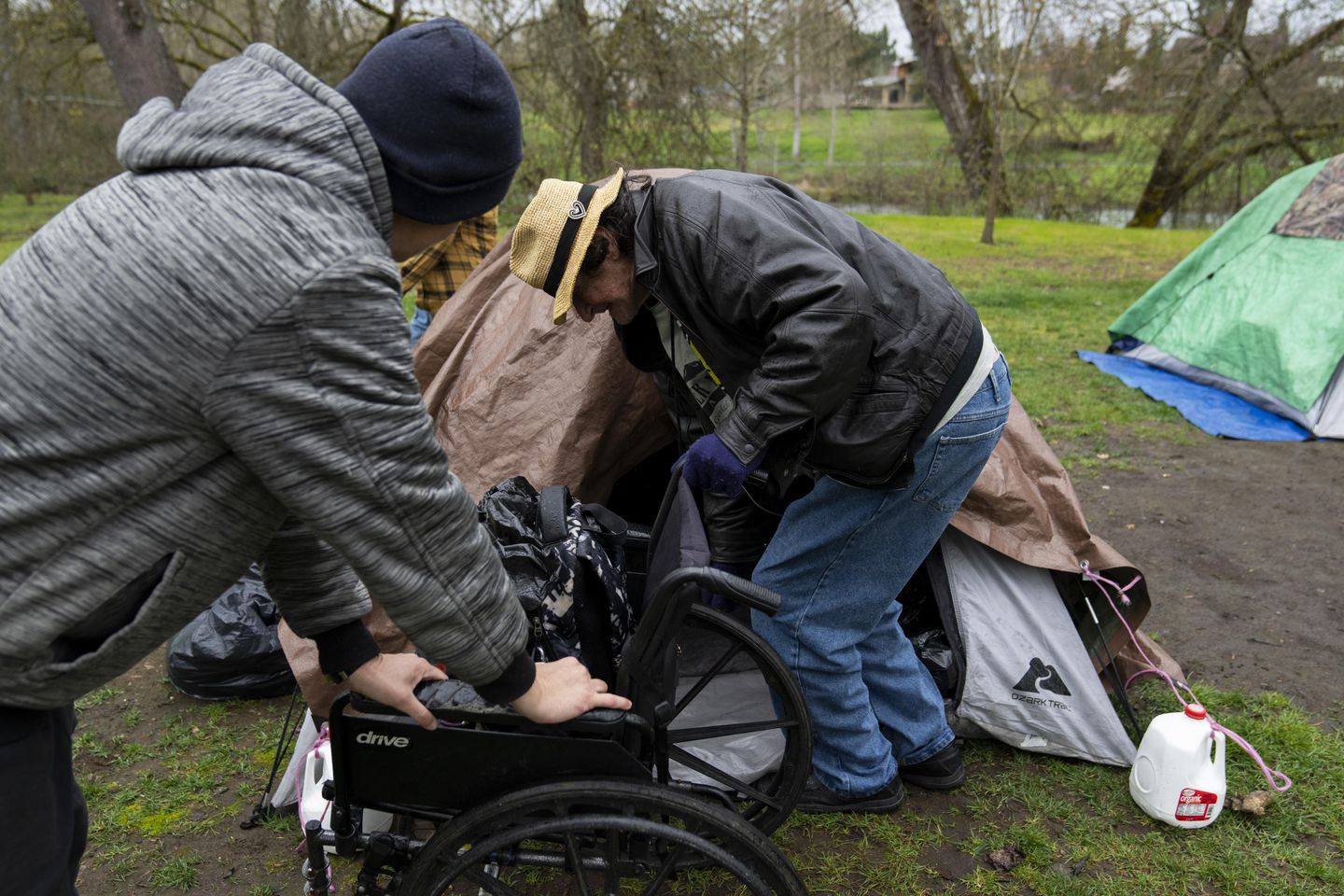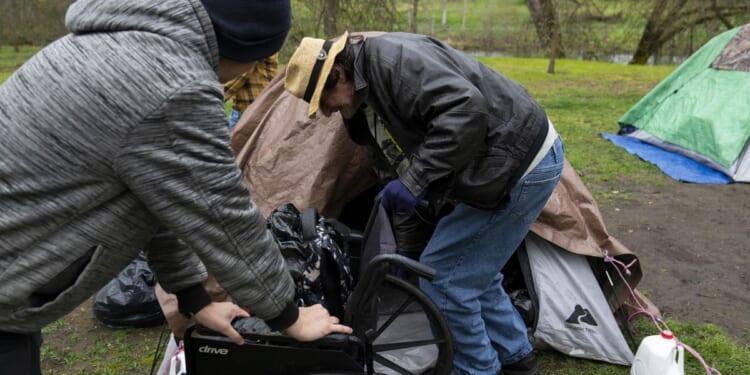
A small Oregon city’s efforts to limit homelessness have drawn support from the state with the nation’s largest homeless population.
California law enforcement and district attorneys have asked the Supreme Court to rule in favor of Grants Pass, Oregon, whose fines on homeless encampments are being challenged amid national attention.
Of the 233,000 homeless persons in the U.S. in 2022, 155,491 resided in the Golden State, the California Sheriffs’ Association noted in its friend-of-the-court brief.
“The problems presented by an increasing homeless population and the proliferation of homeless encampments is a crisis of epic proportions raging on the streets of cities across the United States,” the sheriffs said in their filing.
The justices on Monday will hear oral arguments in a case that could allow Grants Pass and other jurisdictions across the country to enforce ordinances to keep people from sleeping on public sidewalks, streets and parks.
An increase in homeless people and law enforcement’s inability to penalize them “has led to higher call volumes to police agencies, higher crime, higher rates of drug use and marked decrease in the livability of numerous cities,” the California sheriffs said.
In a separate filing, disabled people also asked the high court to rule in favor of Grants Pass, saying homeless encampments clog the sidewalks and make it difficult for them to move about — a violation of the federal Americans with Disability Act.
Advocates for the disabled settled a previous lawsuit in Portland, Oregon, over the issue. But they said the 9th U.S. Circuit Court of Appeal’s 2019 ruling in Martin v. City of Boise (Idaho) prevents cities from criminalizing homeless encampments if there aren’t enough beds at shelters, making it difficult for city officials to public areas.
“The City should have at its disposal, the ability to enforce its ordinances in a way that assures those with disabilities, who are wheelchair bound or blind, the right to traverse its sidewalks without the need to commingle into vehicular traffic,” they said in their friend-of-the-court brief.
Homeless people sued Grants Pass in 2018 over its three ordinances that prohibit sleeping or camping on public sidewalks, parks and streets. Violators receive a civil ticket, not criminal punishment.
The U.S. District Court for Oregon ruled that the ordinance ran afoul of the Eighth Amendment’s ban on “cruel and unusual punishment,” just as the 9th Circuit had in the Martin v. Boise case in 2019.
Grants Pass lost its appeal in the 9th Circuit and took its case to the Supreme Court last year, with oral arguments scheduled for April 22.
“These decisions have erected a judicial roadblock preventing a comprehensive response to the growth of public encampments in the West. The consequences of inaction are dire for those living both in and near encampments: crime, fires, the reemergence of medieval diseases, environmental harm, and record levels of drug overdoses and deaths on public streets,” the city, with a population of roughly 38,000, said in its filing.
The justices will decide if laws that regulate homeless encampments on public property amount to “cruel and unusual punishment” under the Eighth Amendment.
The homeless people who won their initial class-action lawsuit against Grants Pass said in their filing that the ordinances were an effort to push them out of the city. They argued the city lacks enough beds for the roughly 600-1,000 homeless in the area.
“The ordinances make it physically impossible for a homeless person who does not have access to shelter to remain in Grants Pass without facing endless fines and jail time,” they wrote.
Religious groups including the Oregon Quakers, the South Mountain Friends Meeting and the Multnomah Monthly Meeting said in a filing that telling homeless people they aren’t entitled to a blanket or rest runs afoul of Scripture.
“The duty to provide food, clothing, and shelter to the unsheltered and the hungry, taught by Jesus, is one source of the central Quaker belief that there is that of God in every person. Matthew 25:31-46. This case raises the legal question of whether making it unlawful to cover oneself with a blanket when sleeping on public property is cruel and unusual punishment forbidden by the Eighth Amendment. This is also a question of spiritual importance to all Quakers,” they argued in their friend-of-the-court filing.
The case is City of Grants Pass, Oregon v. Gloria Johnson et al. A decision is expected by the end of June.

